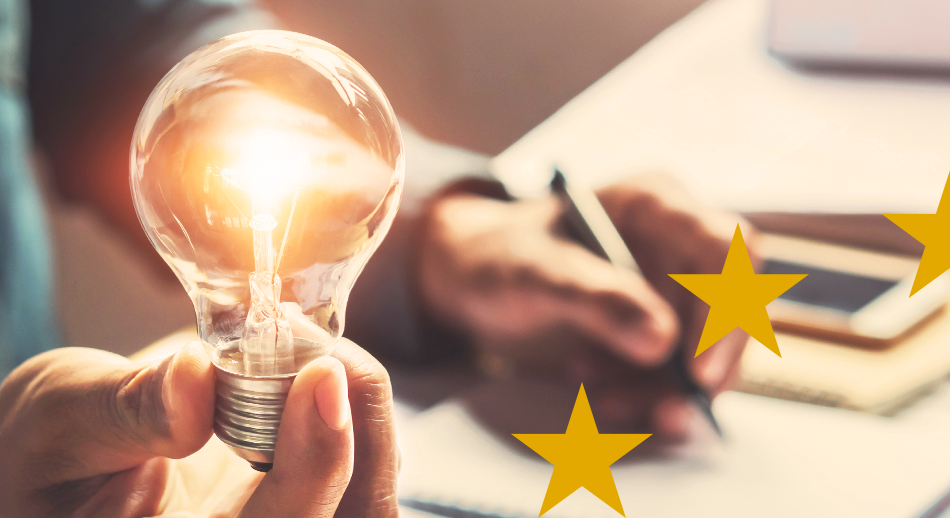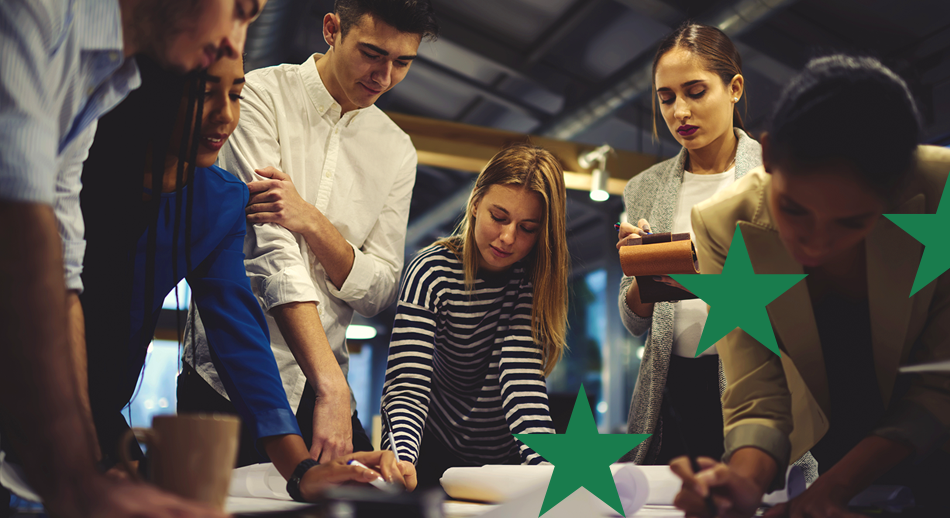We ask and answer many questions about European projects every day. But which ones are “the right ones”? Let’s find out together with the OpenPM2 Guide, now available in Italian
The OpenPM2 Guide is available in Italian
First of all, we present our readers with an important new update: the Open PM2 Guide, which we recently reviewed, as of a few days ago is also available in Italian.
This will allow easier access to the excellent project management tools offered by Open PM2 to all Europrojectors in our country.
You can access the Open PM2 Guide in Italian from this link.
We take advantage of this update to bring you an interesting review of some of the more original “messages” from the Open PM2 Guide.
Open PM2, a “way of thinking” about European projects“
Our Guide devotes ample space to “how to think about” European projects and attempts to provide an answer to the many questions concerning the field of Europrojecting. But now let’s put the two together and try to ask “the question of questions“: what should we ask ourselves when dealing with a European project, to “think” about it in the right way?
The tools available to those working in (or approaching) the field of europlanning provide information, operational guidance and conceptual elements that are also highly relevant, but rarely address a more existential issue: the mindset, attitudes and behaviors that make for a successful European project.
These are “infrequent questions” that we often do not ask ourselves in dealing with European projects, but they can make all the difference.
We address these issues, briefly but effectively, with the treatment proposed by the European Commission’s OpenPM2 Guide.
OpenPM2’s “mindsets,” or “mental approaches”
- Use the best tools to find effective trade-offs between time, cost, scope and quality in achieving project goals.
- Remain aware that these tools serve project objectives, not vice versa.
- Remain result-oriented at all stages and in all activities involved in the development and management of a project.
- Use planning as an indispensable organizational tool and strategic direction, not as a limitation to the opportunities and value the project could generate.
- Promote a project culture based on collaboration, clear communication and a sense of responsibility.
- Assign clear roles in project management, associating them with the most appropriate people to fill them for the good of the project.
- Balance in the most productive way the “P’s” of project management, which may be in conflict with each other: Production, Processes, Planning, People, Rewards and Rewards, Participation, Perception and Policy.
- Invest in developing technical and behavioral skills to best contribute to project implementation.
- Involve project stakeholders in the organizational change needed to maximize project benefits.
- Share knowledge, actively manage “lessons learned,” and contribute to the improvement of project management within one’s own organization.
Be inspired by sound and shared ethical and professional principles.
Open PM2’s “IAQs,” or Infrequently Asked Questions.
- Do we know what we are doing? Develop a clear and shared vision for the project. Manage the project using a holistic approach and optimize the entire project, not just parts of it. Follow a process, but stay “agile” and try to remember regularly why you are doing something.
- Do we know why we are doing this? Make sure the project is important, that someone really cares. Understand its goals, its value and impact, and its connection to a broader strategy. Give in advance a definition of “success” for the project and provide maximum value in terms of concrete results and real benefits.
- Are the right people involved? People make projects work. The main criterion for engaging people and assigning project roles should be to serve the needs and goals of the project, not politics, friendship, functional hierarchy, proximity or convenience.
- Do we know who is doing what? Know what you should do and make sure others know what they should do. Is this clear to everyone? Clearly define and understand roles, responsibilities, and commitments.
- Do we go forward at any cost or risk? Show respect for people’s work and the resources used, avoiding risky behavior and tactics. Keep in mind that it’s not just about the end result: how you get there also matters. Projects should be managed on the basis of positive values and principles.
- Is it important? Not everything is equally important. Identify and agree on criteria and critical success factors for the project, identify the best achievable outcome (minimizing resources and risks), and allocate commitment and attention (tactical and strategic) to benefit both the objectives and sound project management.
- Is this a task for “them” or for “us”? Ensure that people who act on the project and those who benefit from it work as a team and toward a common goal. Good teamwork always works: encourage clear, effective and frequent communication.
- Should I be involved? Contribute from any position. Be proud of the skills, value and positive attitude you bring to the project, whatever it may be. Helping to involve everyone who needs to be involved. Promote and facilitate input from all stakeholders.
- Have we improved? Commit to continually improving oneself and the organization by gathering and sharing knowledge. Reflect on how the project team can become more effective, adjusting practices and behaviors accordingly.
- Is there life after the project? The project is only the beginning of the life cycle of the product or service you are going to propose! Ensure that the project contributes to its long-term success.
These may seem like very general questions and approaches, but they become extremely concrete once they are dropped and visualized in the life of our projects. What do you think? Tell us about your experience!
Check out our social channels, Facebook and LinkedIn, regularly: they are a collector of the Guide’s content and a way we increasingly use to relaunch its content, very often with important “bonus elements.”




